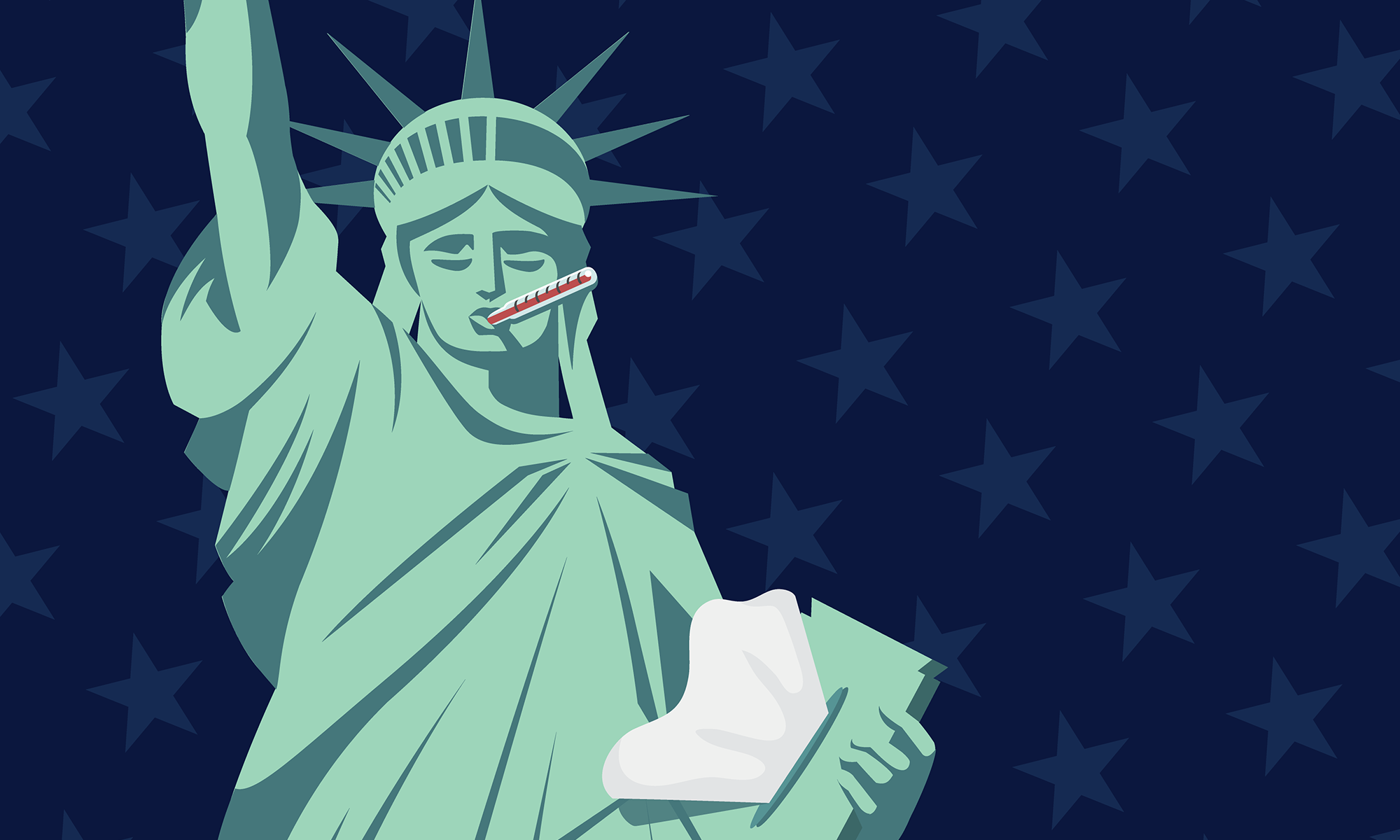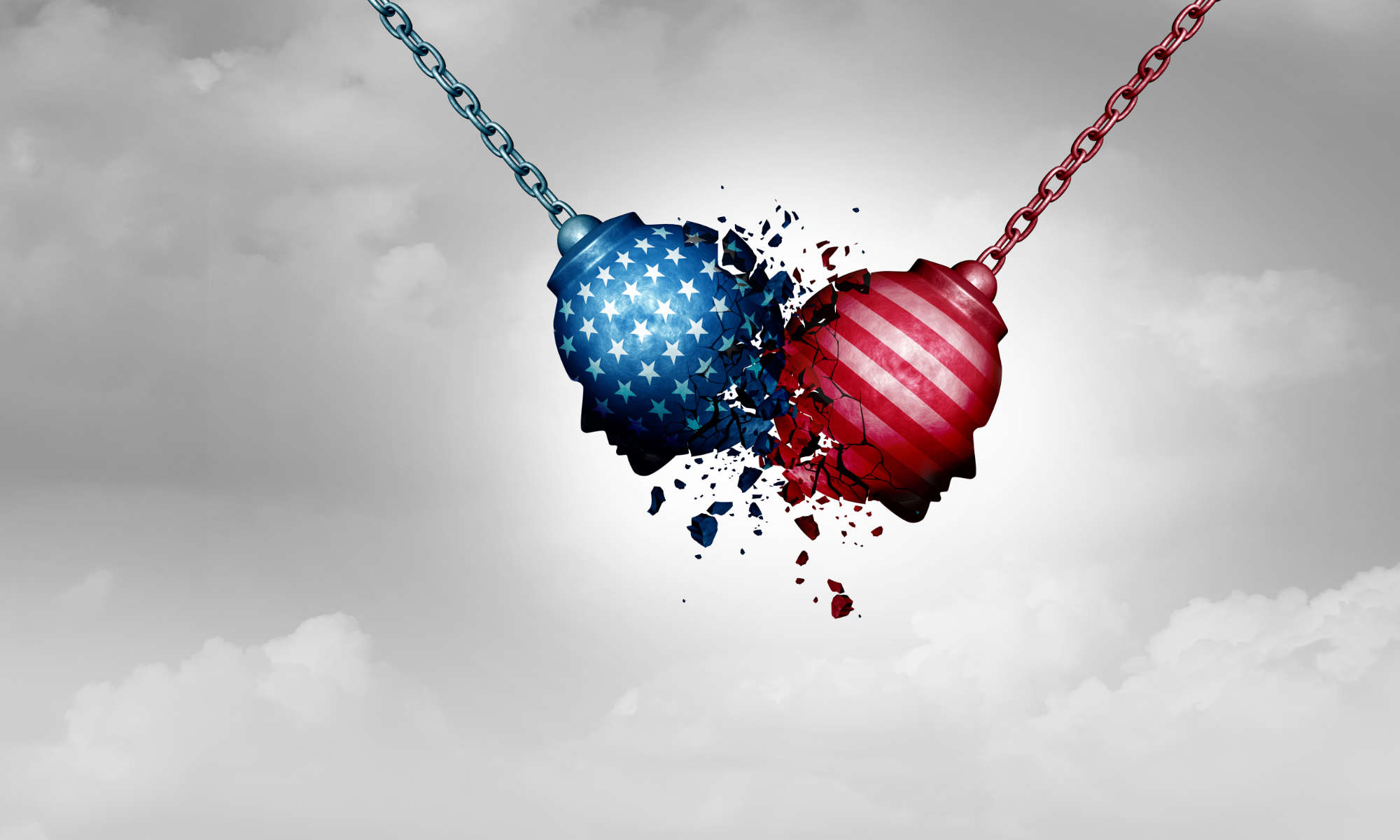Experts in Bright Line Watch poll see a high chance some Republican candidates will be unwilling to concede midterm election losses.
Cofounded in 2017 by the University of Rochester’s Gretchen Helmke and three other political scientists—Brendan Nyhan and John Carey of Dartmouth College, and Susan Stokes of the University of Chicago—Bright Line Watch is a nonpartisan initiative that conducts regular surveys designed to monitor the overall stability and performance of American democracy. Mitchell Sanders ’97 (PhD), of Rochester-based Meliora Research, is the group’s director of survey research.
According to the most recent Bright Line Watch survey, American Democracy on the Eve of the 2022 Midterms, academic experts see a roughly 75 percent chance that more than two high-profile Republican candidates, running for national or statewide offices in the midterm elections, may refuse to concede an election loss. Additionally, these experts rate the high number of 2020 election deniers among Republican candidates “the most abnormal and important event of the past year” and one of the “most extreme” political events to take place in the United States since 2016.
The same survey, fielded by a team of nonpartisan academics who poll experts and the public at regular intervals about the health of US democracy, also finds that two years into President Joe Biden’s term, approximately two-thirds of Republican voters still don’t consider him the legitimate winner of the 2020 election.
“We are losing an essential feature of any democracy—the willingness of parties to lose elections,” says Bright Line Watch cofounder Gretchen Helmke who is the Thomas H. Jackson Distinguished University Professor and the faculty director of the Democracy Center at the University of Rochester. “We now have a situation in which one of the major parties is signaling that it’s no longer willing to do that.”
Helmke, who studies political instability, constitutional crises, the rule of law, and Latin American politics, adds: “Republican elites are very wary of challenging Trump’s narrative about 2020 because they’ll get blowback from him and from his base, and we’ve seen in this election cycle how that can end in primary defeats.”
As voters gear up for the first national elections since the failed attempt to overturn the outcome of the 2020 election and the subsequent January 6 insurrection, Bright Line Watch polled 682 academic experts and a representative sample of 2,778 Americans between October 5 and 14.
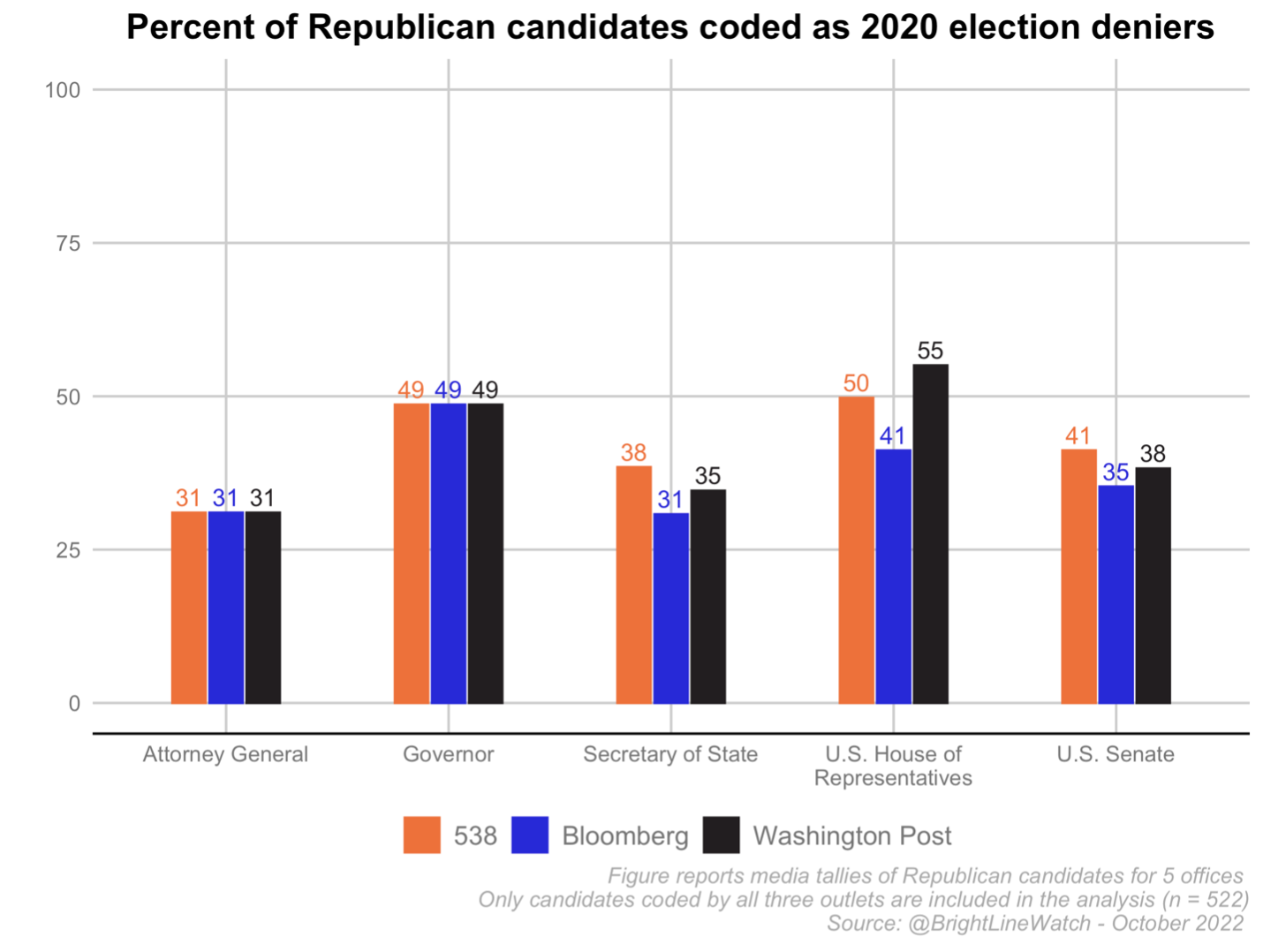
The survey showed that about 67 percent of Democratic voters rated US elections as fraud-free, versus just 27 percent of Republican voters. In earlier surveys in 2021, Bright Line Watch found that only 22 percent of Republican survey respondents regarded elections as free of fraud, compared to 71 percent of Democrats. While the gap between the two camps has narrowed somewhat, “a gigantic chasm” nevertheless remains, notes Helmke.
Join us for the Bright Line Watch virtual panel on Monday, December 5, from 1 to 2 p.m. ET. The event, hosted by the University of Rochester’s Democracy Center (as part of the cross-university Democratic Erosion Consortium), is free and open to the public. Registration is required.
“What’s so pernicious about ‘the big lie’ is that the vast majority of Trump supporters likely think they are protecting democracy, not undermining it.” Helmke says, “Along with conceding defeat, the democratic principle of free and fair elections is absolutely fundamental to democracy,” she says. That’s why denying Biden’s legitimacy would not be “undemocratic,” she says, if you believed that principle had been violated. But, Helmke stresses, “no credible evidence has been put forth to support that belief” [that the 2020 elections were not free and fair]. “It’s all based on fact-free insinuation and conspiracy theories,” she says. “In the wake of the 2020 election, courts across the country rejected claims of voter fraud, as did Trump’s own appointees at the Department of Justice, the FBI, and the Department of Homeland Security, as well as numerous Republican leaders.”
Bright Line Watch’s key findings on the eve of the midterm elections:
- The gap between the confidence of Republicans and Democrats in American elections remains large but has diminished a little in the past year.
- Compared to November 2021, slightly more Republicans recognize the legitimacy of Biden’s 2020 victory and express confidence in the integrity of the vote count in the upcoming midterm elections.
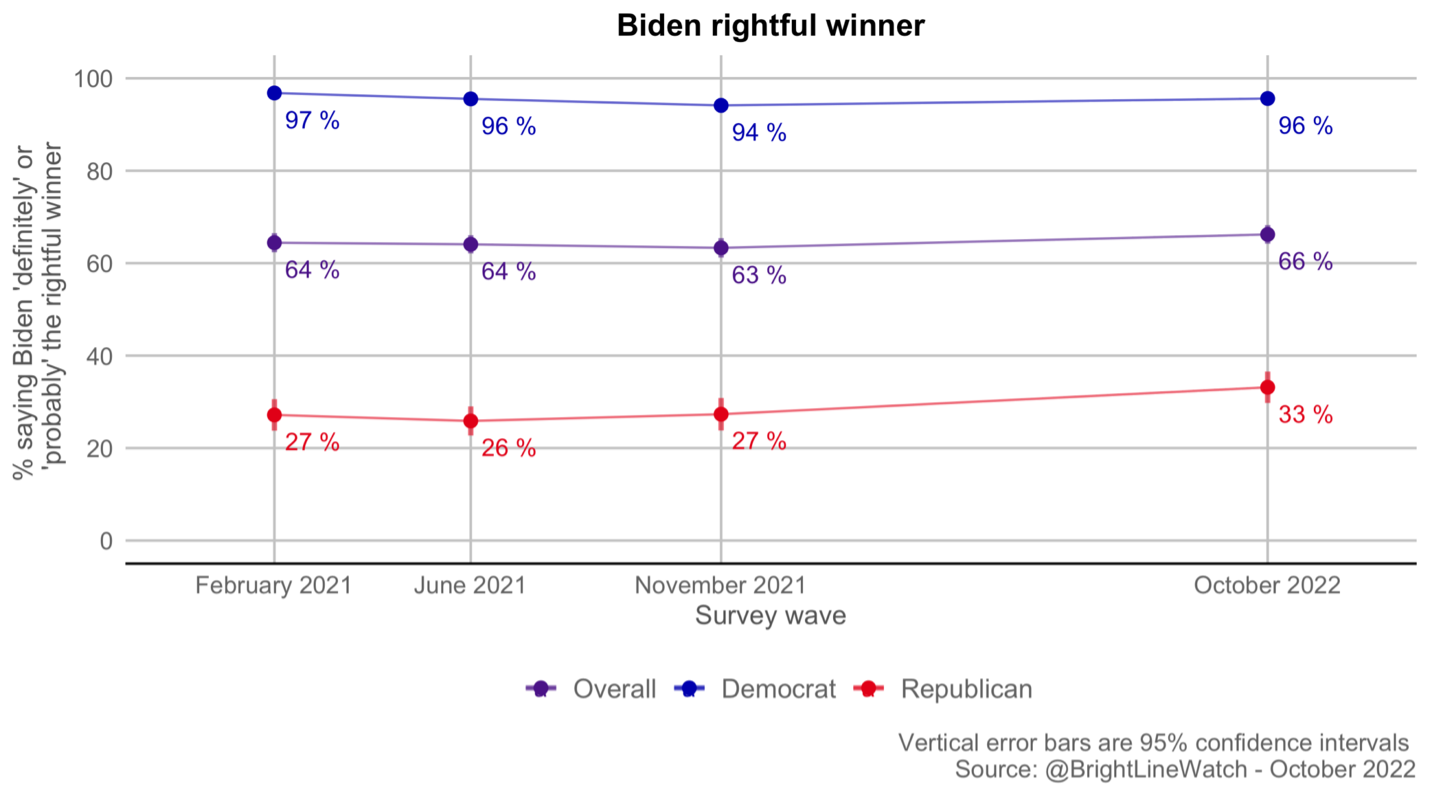
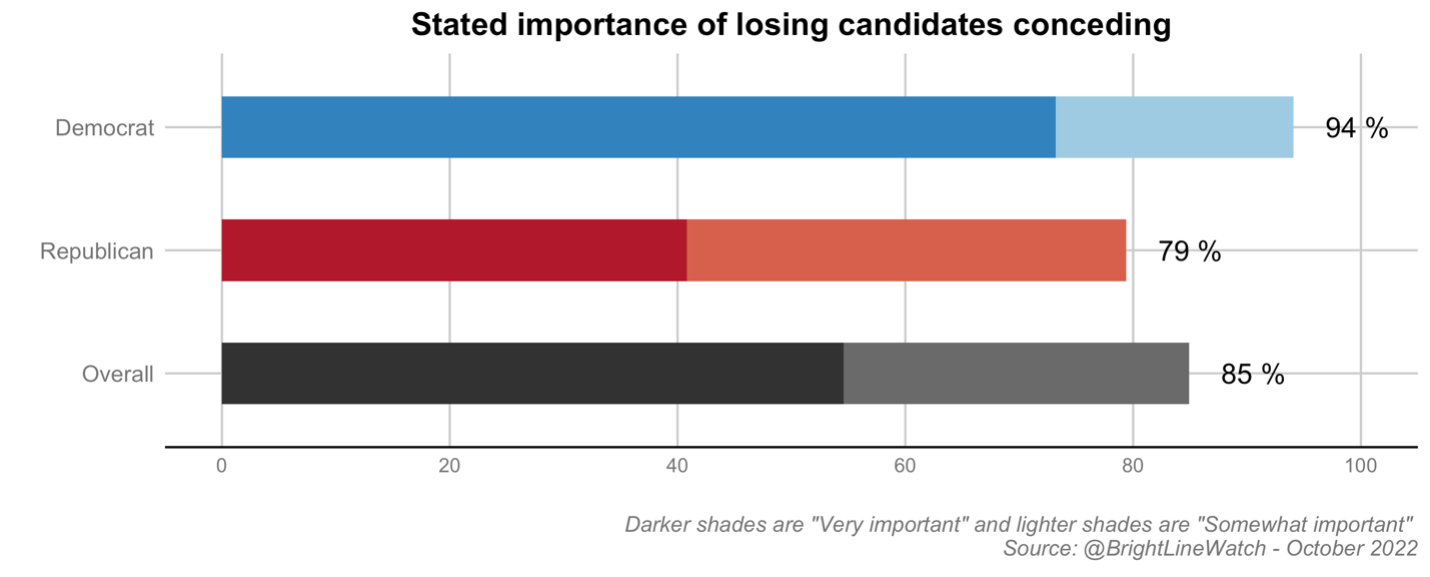
- Both experts and the public, including four in five Republicans, agree that it’s important for candidates who lose fair elections to publicly acknowledge defeat. Yet, hundreds of 2022 Republican candidates for Congress or statewide office continue to deny that former President Trump lost to Joe Biden in 2020 or continue to question the legitimacy of Biden’s victory.
- Experts rate the prevalence of 2020 election denialism among Republican candidates for statewide office as the most abnormal and important event of the past year and one of the most extreme political events to take place since 2016.
- 91 percent of experts rate a 2024 Trump candidacy a threat to democracy, including 35 percent who rate it as an “extraordinary threat” and 39 percent who rate it a “serious threat.”
Possible legal exposure for Donald Trump
The former president faces potential legal exposure from allegations he tried to pressure Georgia’s Secretary of State into fraudulently changing 2020 electoral results, as well as possible charges related to his role in the January 6, 2021 attack on the US Capitol, and an FBI investigation into his handling of classified documents after leaving the White House. The Bright Line Watch team asked both the experts and the public survey respondents to assess whether they believed Trump had committed a crime in each case and if he should be prosecuted for it.
Key findings:
- 70 percent of experts view a prosecution of former President Trump as beneficial to US democracy.
- Majorities of the public believe Trump committed crimes in trying to overturn the 2020 election, in his actions related to the January 6 attack on the US Capitol, and in handling classified documents—and favor prosecution for each. The polled experts overwhelmingly support prosecution.
- However, the partisan splits on these issues are profound—approximately 90 percent of Democrats favor prosecution while nearly 90 percent of Republicans oppose it.
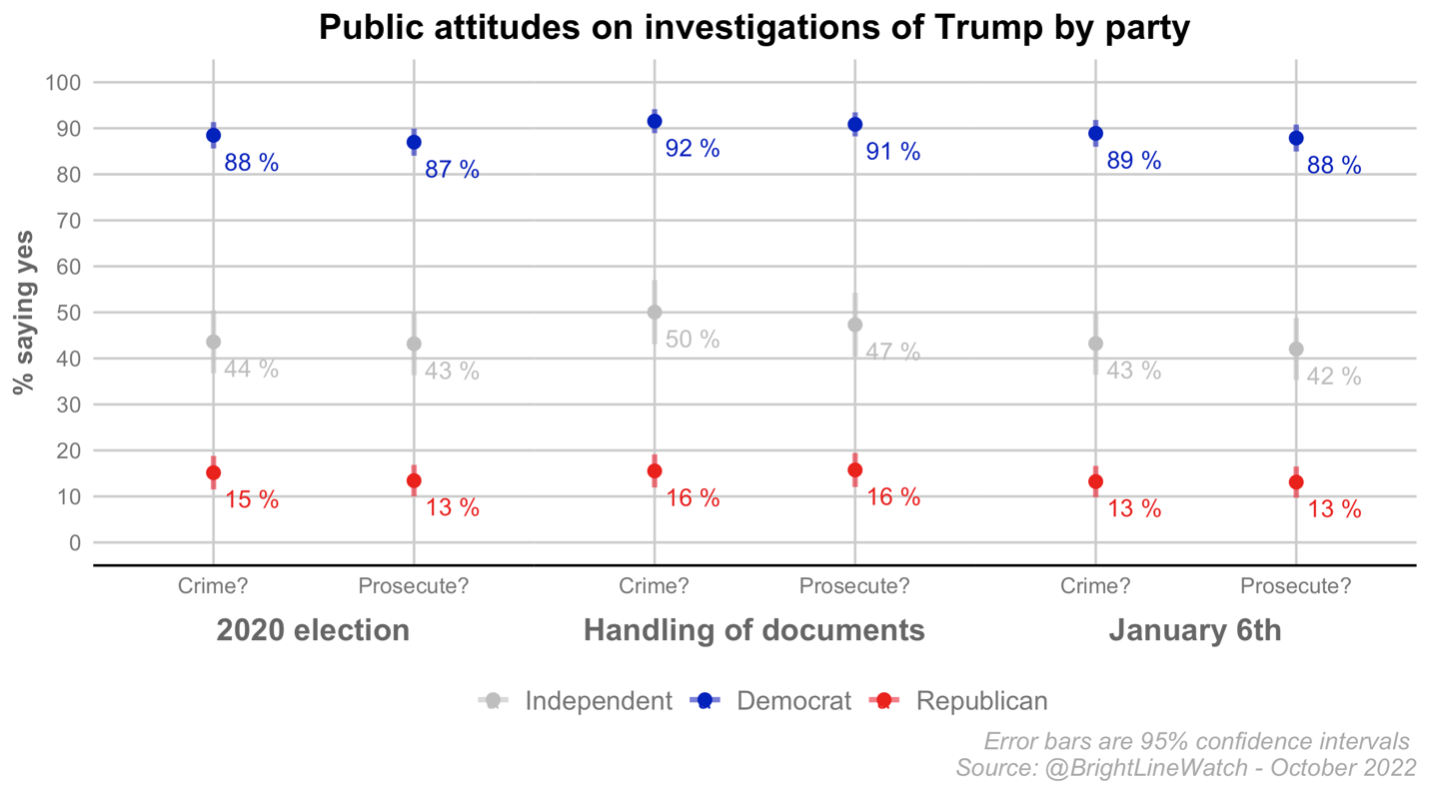
Bright Line Watch will field a second survey after the midterm elections to assess public and expert perceptions.
“What keeps me up at night is that the ‘big lie’ hasn’t just created a situation where only a third of Republicans view the current president of the United States as legitimate,” says Helmke. “It has also opened the door for candidates on the ballot now to prospectively undermine confidence in the election process at the state and local levels, and where a gubernatorial candidate like Kari Lake can adopt Trump’s exact rhetoric and say, ‘I will accept the results of the election if I win.’ That’s most concerning because once the key norm of conceding collapses it’s hard to return to the democratic rules of the game.”
Read more
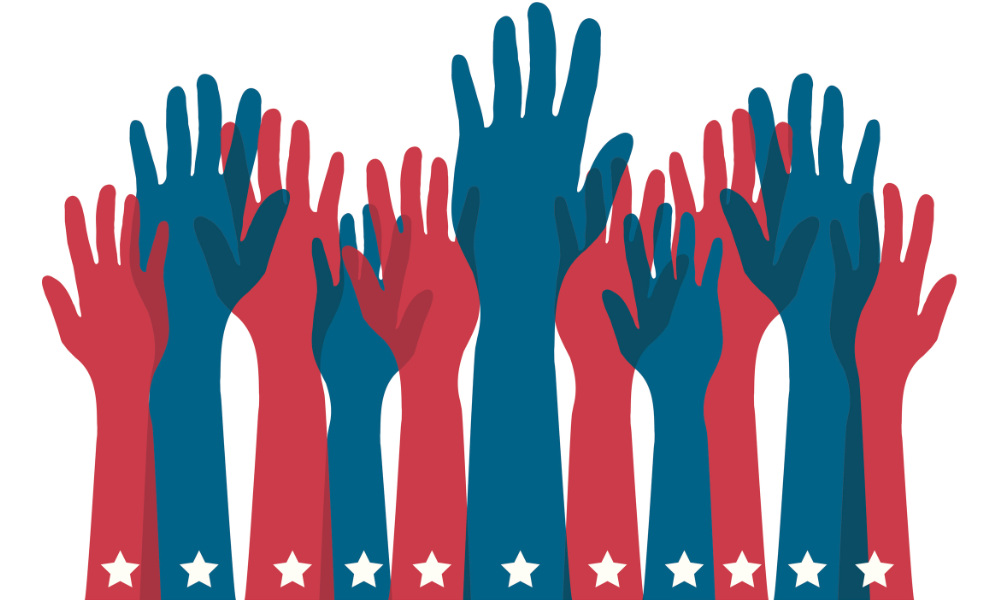 What the midterm elections tell us about the stability of US democracy
What the midterm elections tell us about the stability of US democracy
Rochester political scientists discuss what happens when election deniers run for office, and how US democracy may die ‘by a thousand cuts.’
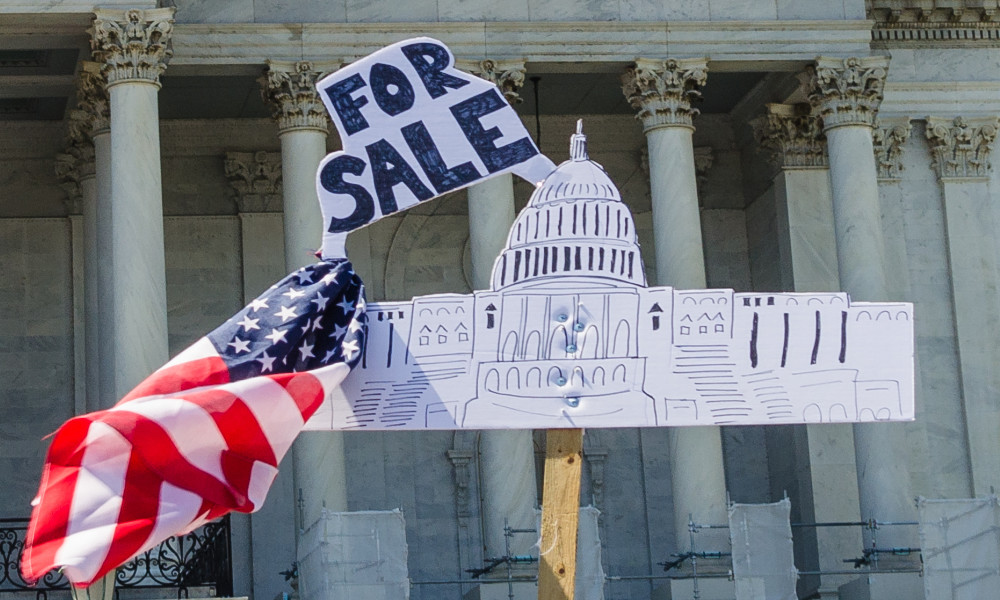 Corporate money in politics threatens US democracy—or does it?
Corporate money in politics threatens US democracy—or does it?
Rochester political scientist David Primo and his coauthor argue that the influence of campaign financing is misunderstood by voters, policymakers, the media, and political analysts.
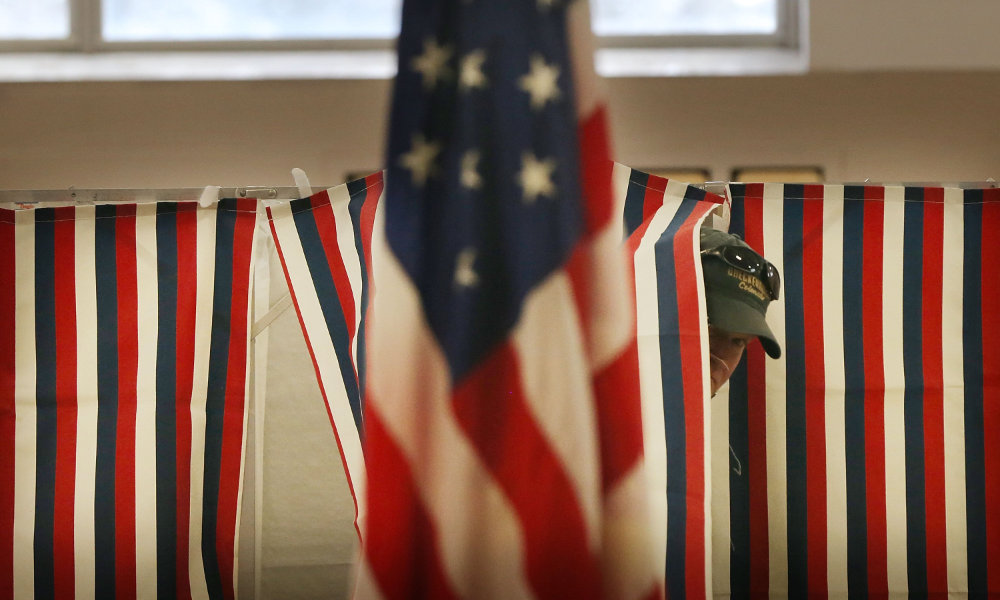 Should secret voting be mandatory? ‘Yes’ say political scientists
Should secret voting be mandatory? ‘Yes’ say political scientists
Making voting more convenient does not combat low voter turnout but instead jeopardizes the integrity of the ballot, according to James Johnson and his coauthor.


